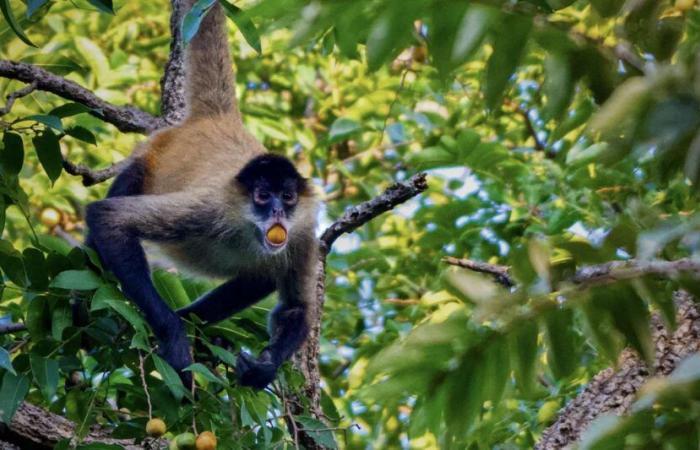Sometimes stories are told of animals found “intoxicated”. But the situation was, until now, considered rare and accidental. So far, because in the review Trends in Ecology & Evolution of Cell Pressecologists question this hypothesis. According to them, thealcoholalcohol – in the form of ethanol – being present in almost all ecosystems, animals that feed on fruits and nectars could be exposed to it regularly. Amazing work from Tel Aviv University (Israel) on the oriental hornet (Vespa orientalis) go further. In the Proceedings of the National Academy of Sciences of the United States of Americaresearchers report that it is the only known animal in nature capable of consuming alcohol chronically and in high concentrations with virtually no negative effects on its health or durationduration of life.
Wild animals in alcoholic environments
Animals that live in humid tropical environments are particularly exposed to alcohol. These environments are indeed favorable to fermentationfermentation fruit and nectar. According to researchers, ethanol became abundant there around 100 million years ago. So even though naturally fermented fruits most of the time only reach one to two percent alcohol per volumevolumeevolution has given mammals and birds – especially primates and shrews arborealarboreal -, the ability to efficiently metabolize ethanol. Because, “from an ecological point of view, it is not advantageous to be drunk when you are climbing trees or surrounded by predators at night”.
Did you know?
Alcohol concentrations of up to 10.2% have been found in overripe palm fruits in Panama.
However, ethanol consumption could have hidden benefits for wild animals. First, because it is a source of caloriescalories. Then, because it could have medicinal benefits. Don’t fruit flies intentionally lay their eggs in substances containing ethanol to protect them from pests?
In animals too, alcohol to feel better in society?
“Cognitively, theories have been put forward that ethanol may trigger the endorphin and dopamine system, resulting in feelings of relaxation that could have beneficial effects in terms of sociability”the researchers also explain. However, this remains to be verified in the field. And that’s what the team plans to do in the coming months.






